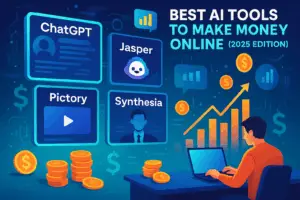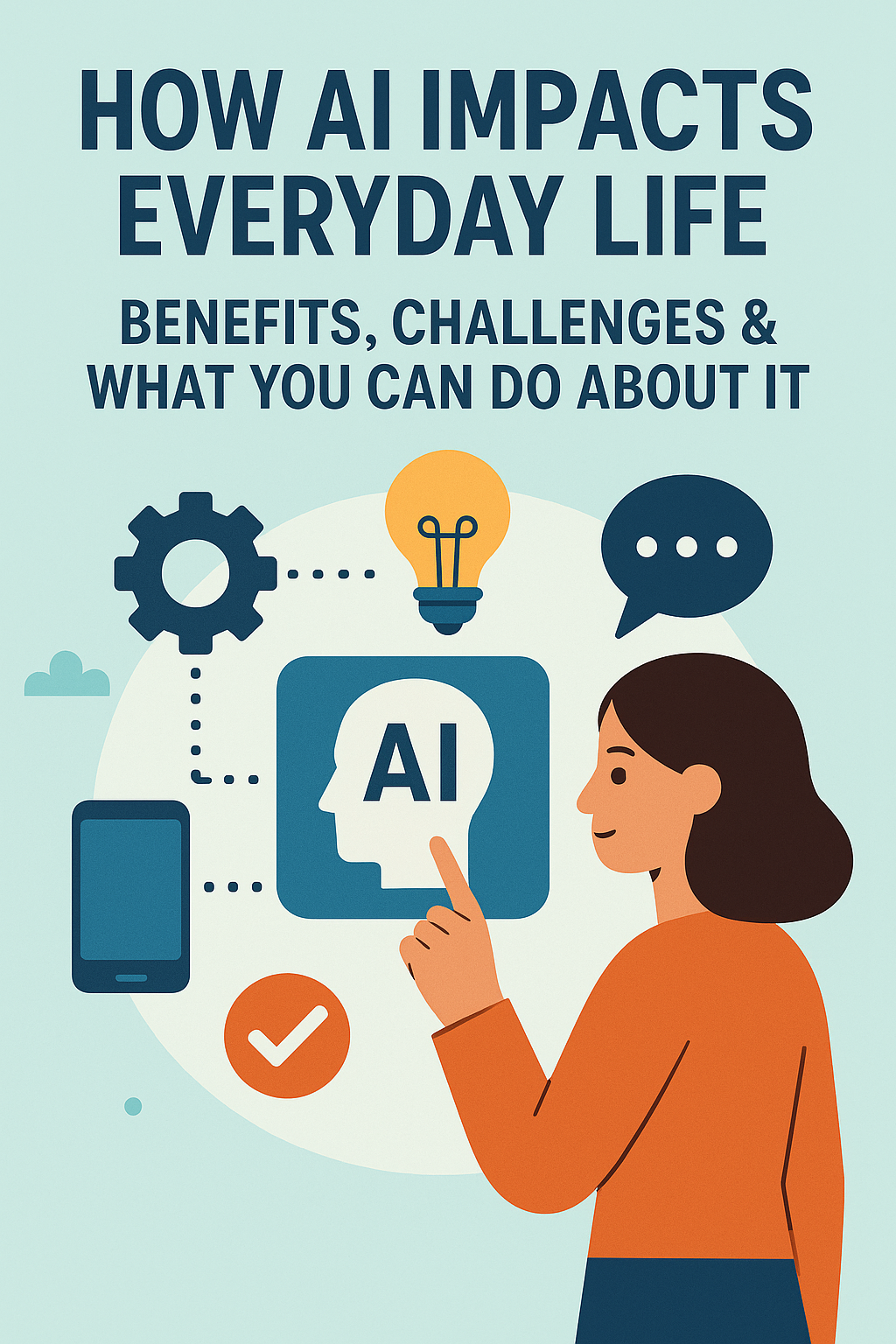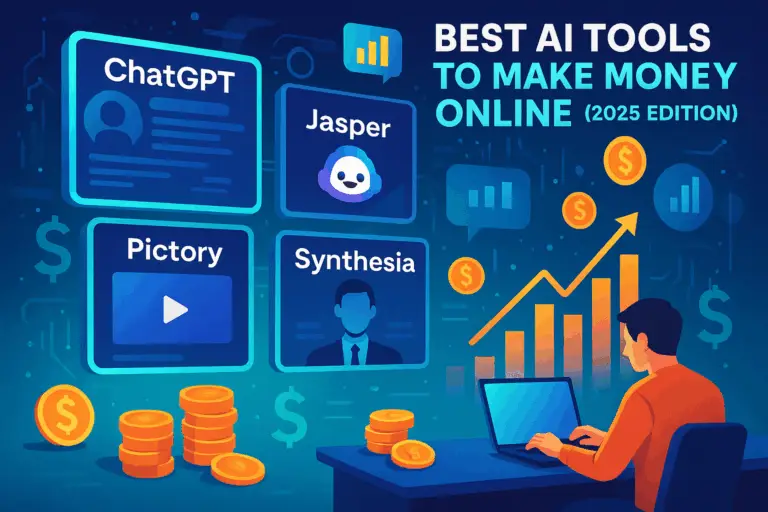How AI Impacts Everyday Life: Benefits, Challenges & What You Can Do About It? Artificial Intelligence (AI) is transforming how we live, work, and think. It powers the apps we use, the cars we drive, the health decisions we make, and even the entertainment we consume.
But what does this really mean for you day to day?
What Is Artificial Intelligence (AI)?
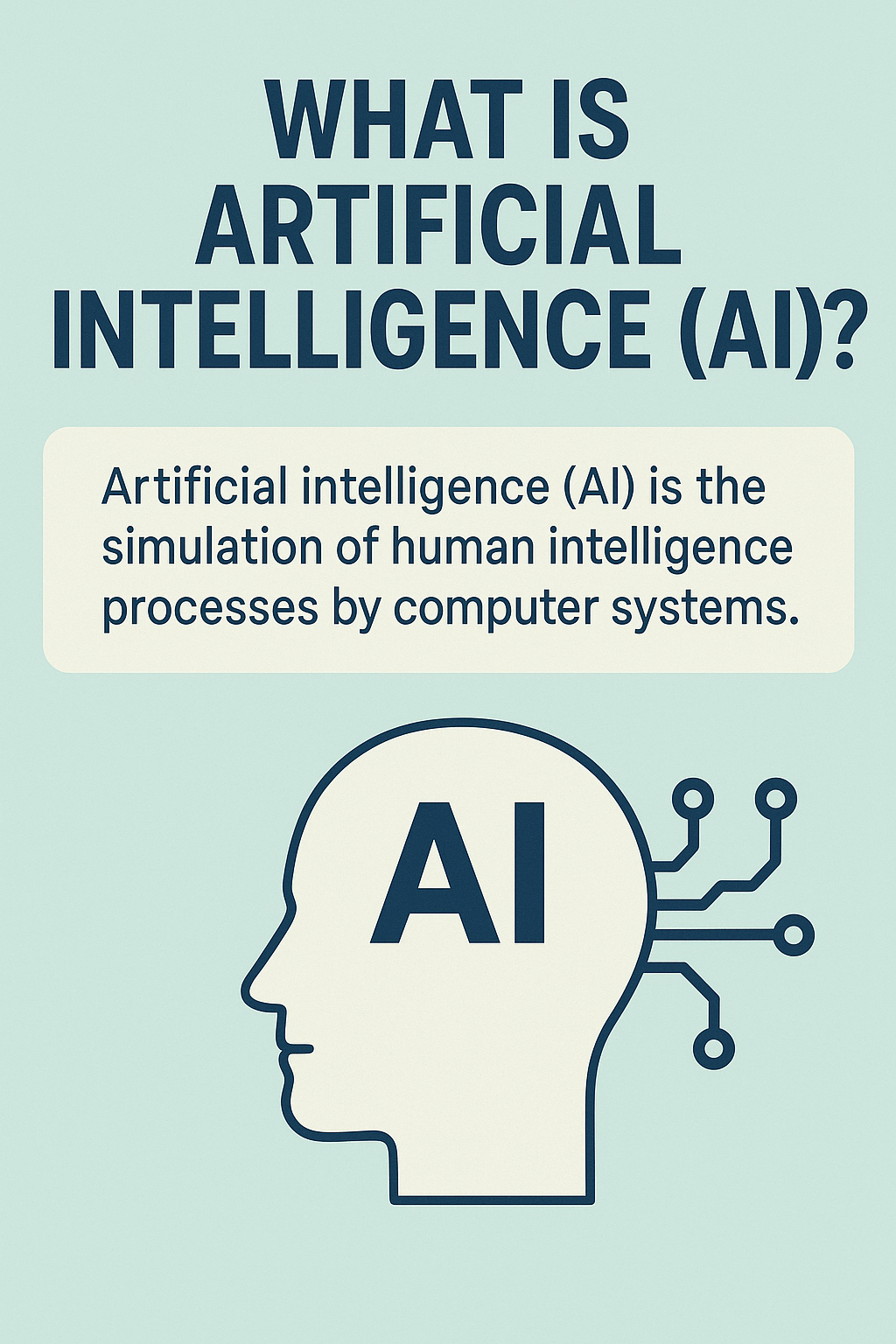
AI refers to systems that simulate human intelligence to perform tasks like:
- Learning from data
- Making predictions
- Understanding human language
- Recognizing images and speech
🧠 Learn more from IBM: What is Artificial Intelligence?
Where AI Shows Up in Everyday Life
1.
Smartphones & Voice Assistants
Voice-enabled tools like Siri, Google Assistant, and Alexa use natural language processing to understand and respond to commands.
2.
Social Media Feeds
AI helps platforms like Instagram, Facebook, and TikTok personalize your feed based on behavior.
3.
Healthcare Advancements
AI detects diseases, assists in surgeries, and supports remote patient monitoring.
4.
Navigation & Transportation
Apps like Google Maps and Uber use real-time data, powered by AI, to optimize routes and arrival times.
5.
Online Shopping & Recommendations
AI analyzes past behavior to recommend products on Amazon, Netflix, or Spotify.
6.
Finance & Fraud Detection
Banks use AI to flag suspicious transactions and personalize financial advice.
💰 AI in Finance: Deloitte Report
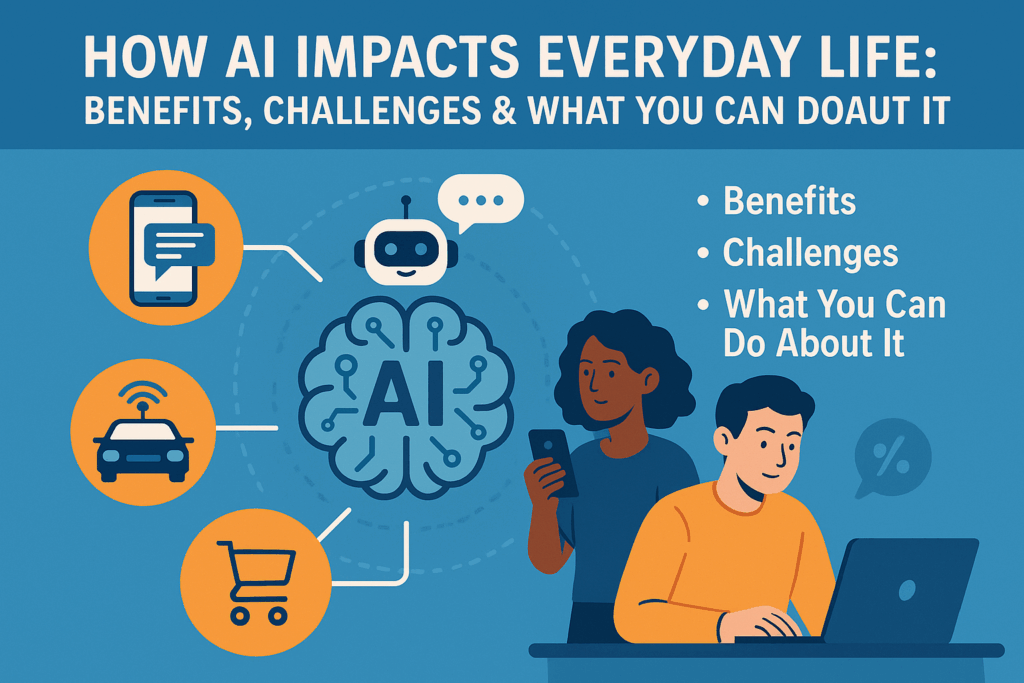
Frequently Asked AI Questions
Is AI taking over jobs?
AI replaces routine and repetitive tasks, but it’s also creating new opportunities in fields like data science, robotics, and AI ethics.
World Economic Forum on AI and Jobs
How much AI is in daily use?
Most people interact with AI dozens of times a day without realizing — from unlocking phones to using voice search.
📊 Pew Research: AI in Everyday Life
✅ Benefits of AI in Everyday Life
- Convenience – Automates repetitive tasks
- Personalization – Improves user experience
- Efficiency – Streamlines decision-making
- Accessibility – Helps people with disabilities
- Safety – Detects fraud and predicts risks
Downsides of AI You Should Know
- Privacy Issues – AI systems often require large amounts of personal data.
- Bias in Algorithms – AI can reinforce societal biases if trained on flawed data.
- Job Disruption – Certain industries face high automation risks.
- Over-reliance – Relying on AI may reduce human critical thinking.
AI Bias Explained: Harvard Business Review
How to Improve Your Life with AI
- Control Your Data – Regularly update app permissions.
- Understand the Tools You Use – Learn how apps like Google, Facebook, or Amazon collect and use your information.
- Upskill Yourself – Focus on human skills like creativity, empathy, and problem-solving.
- Try AI for Productivity – Use AI tools like ChatGPT, Grammarly, or Notion AI for writing, planning, or summarizing content.
Pro Tip for Businesses
If you’re running a business, adopting AI tools like Zapier, HubSpot AI, or SurferSEO can improve marketing automation, SEO content creation, and customer relationship management.
Final Thoughts: Make AI Work for You
AI is already part of your daily life — whether you realize it or not. The key is to use it mindfully, question its outputs, and protect your digital privacy.
With awareness and smart usage, AI can become your greatest personal assistant, not a threat.
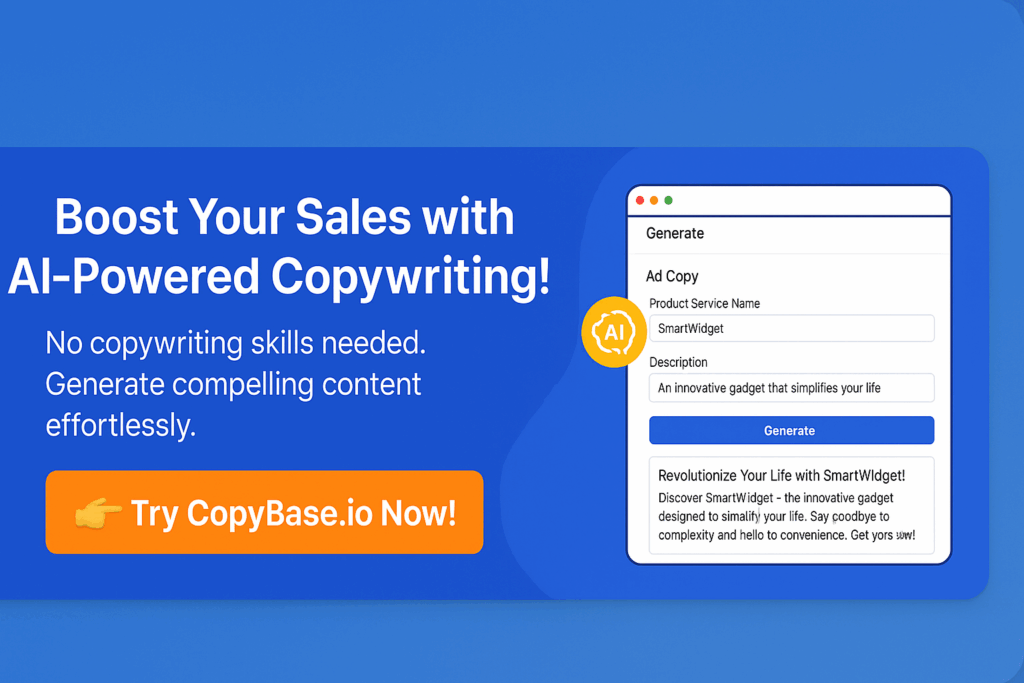
💡 Affiliate Disclosure
Some of the links on this page are affiliate links. This means if you click and make a purchase through these links, I may earn a small commission at no extra cost to you. This helps support my work and allows me to keep providing valuable content. Thank you for your support!




